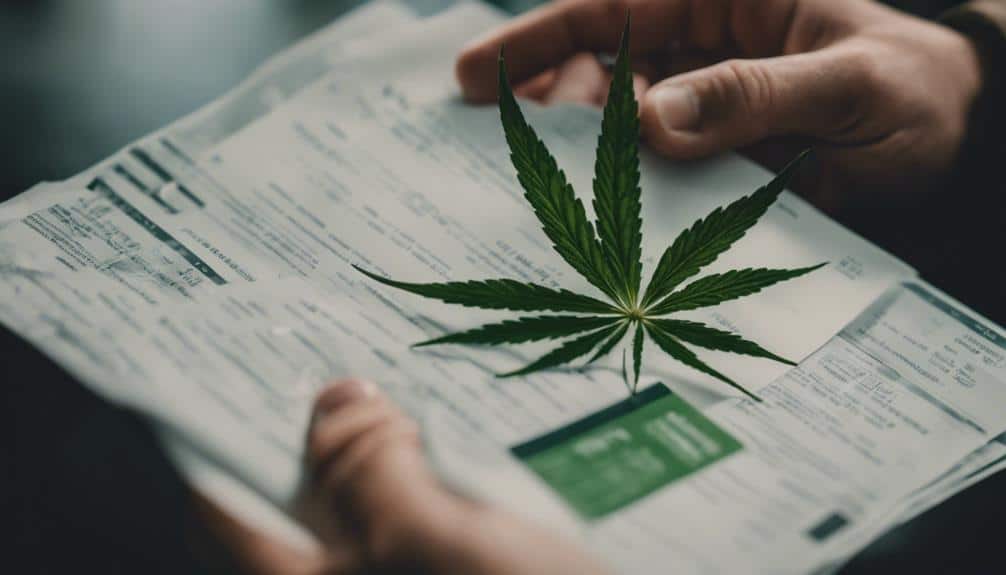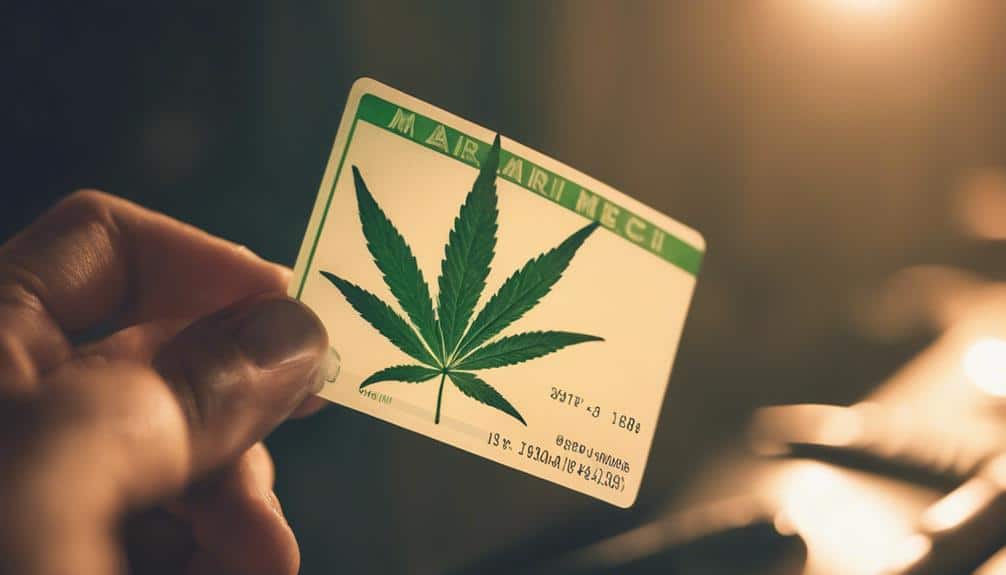Did you know that Delaware is one of the states that permits the use of medical marijuana for treating specific health conditions? If you’re living with a debilitating condition like cancer, HIV/AIDS, or chronic pain, you might be eligible for this alternative treatment. However, qualifying isn’t as straightforward as it might seem. Not only do you need certification from a licensed Delaware physician, but there are also crucial steps to follow, conditions to meet, and legal implications to consider. Let’s explore what it takes to qualify for medical marijuana in Delaware.
Table of Contents
Understanding Medical Marijuana

To fully grasp how you can qualify for medical marijuana in Delaware, it’s essential first to understand what medical marijuana is and how it works in the human body. Medical marijuana refers to the use of the Cannabis plant or its chemical compounds—called cannabinoids—for medical treatment. Your body naturally produces similar compounds which perform essential functions like pain regulation and immune response.
The differentiation between cannabis strains is an important concept to understand. Not all Cannabis plants are created equal; there are hundreds of strains each with its unique blend of cannabinoids. These strains can be broadly categorized into three types: Sativa, Indica, and Hybrid. Sativa strains are known for their uplifting effects while Indica strains are more associated with relaxation. Hybrids—as the name suggests—are a blend of both.
Now let’s delve into exploring therapeutic benefits. Different strains have different therapeutic benefits. For instance, some are great for pain relief, others for anxiety, and others still for sleep disorders. It’s all about finding the strain that works best for your specific needs. This understanding will aid you in your journey to qualify for medical marijuana in Delaware.
Delaware Medical Marijuana Laws
Navigating Delaware’s medical marijuana laws is crucial for your quest to qualify for its use. You need to understand the state’s regulations about Cannabis Cultivation Laws and Recreational Usage Policies.
Delaware law permits the use of medical marijuana for registered patients, but it’s not as simple as walking into a dispensary and purchasing your medicine. There are rules to follow. For instance, cultivating cannabis at home is prohibited regardless of your patient status. The state regulates the cultivation of cannabis strictly ensuring that it occurs in a secure controlled environment by state-licensed growers.
Recreational use of marijuana remains illegal in Delaware. The state’s marijuana laws differentiate clearly between medical and recreational usage. Despite ongoing debates and legislative attempts, recreational usage policies haven’t changed. It’s essential to know that possession or use of marijuana without a medical marijuana card is punishable by law.
Therefore understanding and abiding by these laws isn’t just a suggestion—it’s a requirement. This knowledge will help you navigate your path to qualifying for medical marijuana use while staying within the confines of Delaware’s laws.
Qualifying Conditions for Eligibility

Now that you’re familiar with the laws, let’s examine the specific conditions that would make you eligible for medical marijuana in Delaware. The severity of your condition and the efficacy of therapeutic alternatives play a significant role in determining your eligibility.
In Delaware, you qualify for medical marijuana if you suffer from a condition such as:
- Cancer
- HIV/AIDS
- Decompensated cirrhosis
- Amyotrophic Lateral Sclerosis (ALS)
The symptoms associated with these conditions—such as chronic pain, severe nausea, seizures, or persistent muscle spasms—can be debilitating. Medical marijuana may offer you a viable therapeutic alternative if other treatments have failed or produced intolerable side effects.
To emphasize, Delaware’s Medical Marijuana Program doesn’t simply consider your diagnosis; the severity of your condition and the effectiveness of other therapeutic alternatives are also evaluated. If your condition is debilitating and conventional treatments haven’t been effective, medical marijuana could be a solution for you.
Steps to Get a Medical Marijuana Card
Embarking on the journey to obtain a medical marijuana card in Delaware involves several crucial steps you’ll need to follow. Initially, you’ll need to get written certification from a Delaware-licensed physician stating that you have one of the qualifying medical conditions. This certification gives way to the card approval process.
Next, apply online through Delaware’s Medical Marijuana Program (MMP). During this process, provide personal and medical information. Don’t fret about data security—the MMP strictly adheres to patient privacy rights ensuring your information isn’t shared without consent.
After submitting your application it’s time to wait. The MMP will review your application—a process that can take up to 45 days. If approved, you’ll receive your medical marijuana card in the mail.
Required Documentation for Application

To successfully apply for your medical marijuana card in Delaware, gather several important documents to support your application. These documents will help confirm your identity, residency, and medical condition.
You’re required to provide:
- Valid Delaware identification: A current driver’s license or state ID will suffice.
- Proof of residency: A utility bill or any government-issued documentation showing your Delaware address.
- Medical documentation: A signed statement from a licensed physician in Delaware diagnosing you with a qualifying condition.
- Payment for application fees: Delaware charges a non-refundable $50 application fee for your medical marijuana card.
Patient privacy is paramount throughout this process. Your personal and medical information will be handled with utmost confidentiality and used solely for the purpose of your medical marijuana application.
You’ll need to submit these documents with your application form. Ensure all information is accurate to avoid delays. Once approved, your medical marijuana card will be mailed to you. Then you can legally purchase and use medical marijuana in Delaware—with certain restrictions. Following these steps makes the application process smoother and more efficient.
The Role of Caregivers in Medical Marijuana Use
In Delaware caregivers play a significant role in helping patients manage their medical marijuana use. They offer crucial support ensuring patients adhere to their prescribed dosage and use methods. If you’re considering becoming a caregiver, understand the responsibilities and requirements involved.
Firstly, caregiver training is a must. This equips you with necessary knowledge about the medical marijuana program, how to administer the drug, and how to manage potential side effects. The state provides specific training designed to ensure you’re competent and comfortable in your role. It’s not just about the physical handling of medical marijuana—it’s also about understanding the emotional and psychological aspects of the patient’s journey.
Secondly caregivers must be prepared for the responsibility that comes with this role. It can be challenging but caregiver support is available. This includes resources and support networks to help manage demands of caring for someone using medical marijuana. Remember—you’re not alone in this journey. Engaging with caregiver support services can offer invaluable help guidance, and reassurance.
Your role as a caregiver is important—with right training and support you can make a significant difference in someone’s medical marijuana journey.
Renewing Your Medical Marijuana Card

Once you’ve obtained your medical marijuana card in Delaware it’s crucial to keep it up-to-date by renewing it regularly. This isn’t a one-time process—rather it’s a continuous commitment to maintaining your standing as a patient. The card expiration date is critical information you need to remember.
The renewal process may seem daunting but doesn’t have to be—here are steps to take when it’s time:
- Start by checking the expiration date on your card. Apply for renewal at least 30 days in advance.
- Have your physician complete a new certification verifying your qualifying condition.
- Ensure your personal information hasn’t changed. If it has, provide necessary documentation to update your profile.
- Submit the renewal application online through the Delaware Health and Social Services website.
Legal Implications of Medical Marijuana Use
While keeping your medical marijuana card renewed is important, understanding legal implications that come with its use is equally vital. Remember—federal law still classifies marijuana as a Schedule I drug. This means Federal Interference can occur even if you’re legally using it in Delaware.
You’re probably wondering what this means for you. Well, although Delaware law protects you from state prosecution federal authorities still have the right to enforce federal laws—in other words, you could face charges if federal officials decided to interfere. It’s a tricky situation but critical to be aware of.
Besides consider Employment Consequences—some employers might not accommodate medical marijuana use even if you’re a cardholder. Delaware law doesn’t require employers to allow marijuana use and testing positive could lead to employment repercussions. Discussing your situation with employer beforehand is essential to avoid surprises.
Managing Side Effects and Risks

Understanding how to manage potential side effects and risks associated with medical marijuana use is crucial. Knowledge of dosage control and strain selection can help avoid potentially harmful side effects.
The impact of medical marijuana varies greatly depending on the individual, the strain used, and the dosage. This is why it’s recommended to start with a low dosage and gradually increase until you find the right balance.
Strain selection is another important factor—different strains have different effects and choosing the right one can significantly influence treatment outcomes.
Here are a few tips to help manage side effects and risks:
- Always start with a low dosage and monitor your body’s response.
- Select strain according to your specific medical condition and needs.
- Consider non-smoking methods of consumption to avoid lung-related risks.
- Consult with healthcare professional for safe and effective use.
Conclusion
Navigating the maze of medical marijuana qualification in Delaware isn’t just complex—it’s like scaling Mount Everest in flip-flops! But armed with this guide, you’re ready to tackle this challenge. Remember—your health is worth fighting for. Now get out there, get certified, and start living a life with less pain and more relief!
We’d like to extend an invitation—if you’re interested in learning more about medical marijuana benefits visit us at Cannabis Docs of Delaware or give us a call at (855) 420-6797. We’re more than happy to assist guiding you through this process. Remember—your health wellbeing is our priority!

